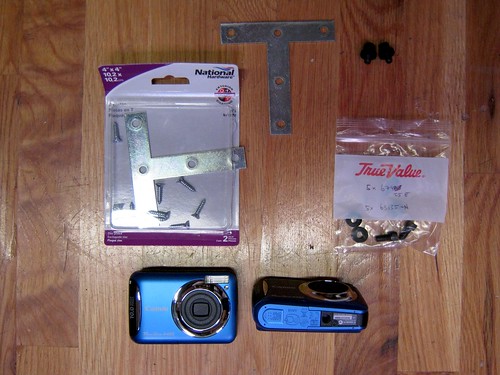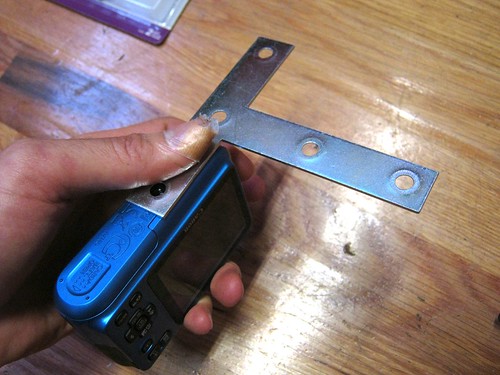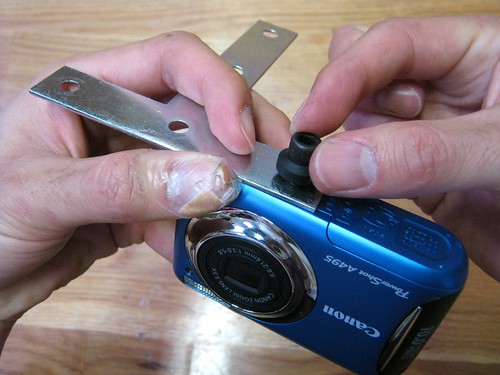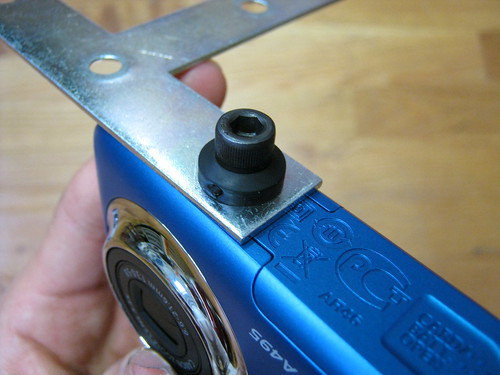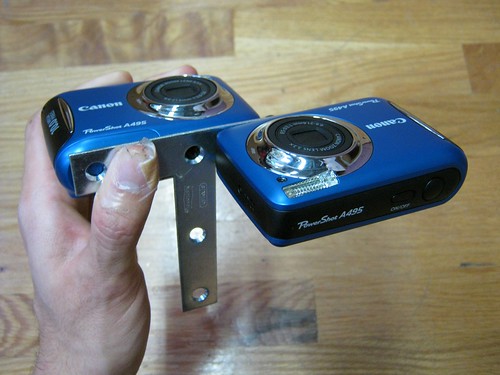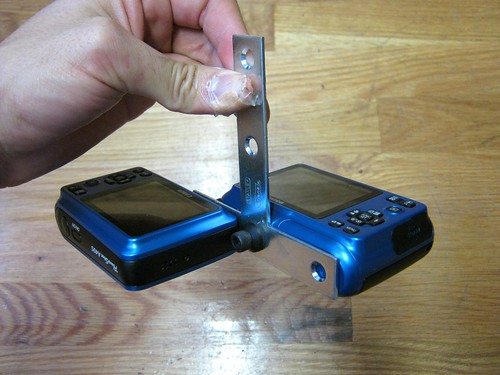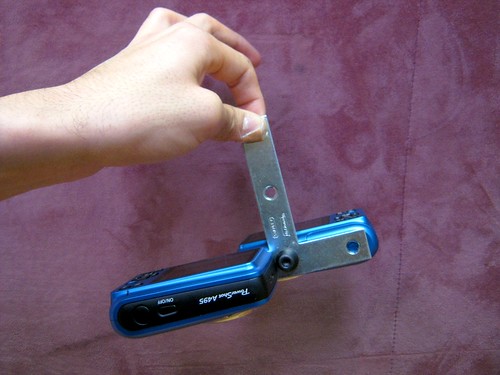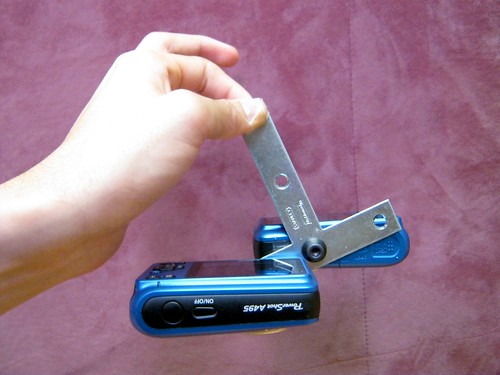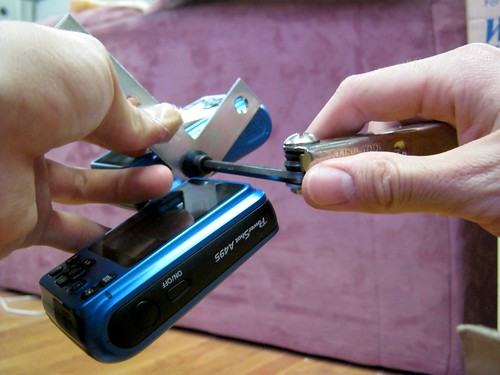T-bracket Dual Camera Rig
Step-by-step guide
This design for a dual camera rig (see Dual Camera Rig for why you'd want to do this) is based on a T-shaped or L-shaped bracket, washers, and two bolts which fit into the camera mounting holes on most cameras.
You'll need:
- 2x 1/2 inch long 1/4"-20 coarse thread bolts (i bought the kind with grippy heads so i can mostly screw them in by hand, then tighten with a hex wrench)
- a thick rubber washer (mine was called a "Chicago style seat washer")
- 2 cameras with threaded mounting holes
- a 4"x4" T-bracket with 1/4" holes (an L-bracket could work too)
- a hex wrench or whatever you need to really tighten your bolts
Basically follow the steps in the images below:
Be sure the camera is facing "down", such that it will be hung by the base of the upside-down T. I did it wrong at first.
Balance
See how the cameras don't face downward in the following image? In the subsequent image I've tilted them so they actually face down. Do this before tightening the bolts.
Tightening
Because of the rubber washers, you can really crank down on the bolts. I'm not completely sold on it -- it's not 100% solid but I like that the rubber kind of pads things and means you don't have to have completely precise bolt lengths and stuff. But go ahead and try something else and prove me wrong. The only danger is that the cameras may move under a lot of pressure; they won't fall off.
Triggering
From here, you can just use a rubber band on each camera to trigger them without synchronizing -- it works pretty well. But if you're interested, I'll be posting soon on how to connect synchronized electronic triggers...
Aligning cameras
Chris Fastie has posted a great video where he looked at how closely aligned 2 cameras of his were:

(Jeff:) I wonder if the mismatch could also be due to different image processing circuits/software in the two different models of camera. I'm curious to try this myself with 2 A495s.
